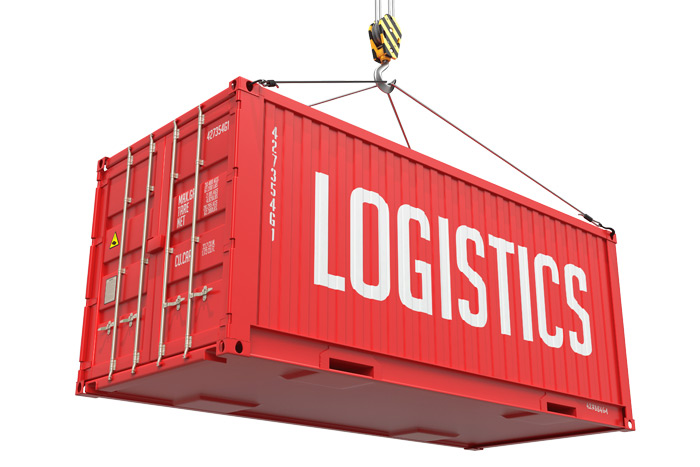
Your New Career In Logistics
The increasing opportunities within the dynamic logistics industry make it attractive for Service-leavers.
Logistics is everything a Service-leaver could wish for in a second career after the Armed Forces. It’s an industry where their skills and experience are plainly regarded as transferable (and valuable) and it’s a growth industry that shows no sign of slowing, meaning that it could be a smart long term move.
Logistics is all about ‘processes’. This is likely to be a familiar tune to anybody that has served in the British Armed Forces. Efficiency is the top requirement of the industry that the UK (and the world) relies on to keep trade and commerce going – and everyone fed.
The industry relies on processes in planning, implementing and controlling procedures for effective transportation of (for the purposes of this feature, ‘goods’) from their source to the point of consumption and in line with consumer demand and expectation, in terms of quality and timing. To this end bananas are cut when they are green and with any luck are just the right shade of yellow when they get eaten – with very few customers really giving much thought to the thousands of miles they’ve travelled in-between times.
Variety of roles
It isn’t just food and it isn’t just about boats and lorries. The industry is vast and includes a number of related industries that take care of moving, storing, handling and delivery, including: air freight, driving (road haulage), postal services, removals, sea and rail freight, storage and warehousing as well as wholesaling. Somewhere within all of that, there might well be a role for a Service-leaver with the correct aptitude and organisational skills who can work across different strands of the industry towards desired outcomes.
Of course, the Armed Forces depend on logistics just as surely as any other large organisation/company does. With this in mind, you’ll see remarkable parallels with the duties of Service personnel to people working in the logistics industry. For example, a Supply Officer or Warrant Officer in the RAF may already have skills in areas like warehouse/distribution management or supply chain management that relate very easily to civilian logistics roles.
Although logistics roles in the Forces are similar to those on Civvy Street, it is definitely a sound investment to obtain qualifications specific to the industry. Qualifications are likely to make you more attractive to employers or give you a recognised niche, useful in areas of skills shortages. The Chartered Institute of Logistics and Transport (CILT) UK offers a range of accredited courses and is a good starting point for anyone wishing to learn more about logistics.
New markets and challenges
Although logistics is experiencing a period of growth that has been forecast to remain for some time, the very opportunities that are causing that expansion bring a heightened sense of competition within the industry. Emerging markets, such as China present a potentially rich vein to tap but it takes a certain type of organisation to be able to rise to the challenge. If logistics is about ‘not dropping the ball’ it’s important to have plenty of hands available and this is the key reason why the industry has witnessed consolidation between companies. As with all new clients or markets, the ideal is to get in first and then concentrate on retention through quality of service (or an exciting diversification of services if that is what is desired). Naturally, market forces always have an impact on pricing and fewer (consolidated) organisations means that competition between them is fierce.
The major cost driver in the logistics industry is fuel. Increasing prices, some uncertainty about future fuel security and ironically, environmental concerns are constant issues that need to be carefully monitored. Pricing and reputation are important factors in attracting customers in any industry.
Fortunately as technology has improved, so consolidation of organisations and even outsourcing of supply chain or warehousing etc have become operationally smoother. Parcels and cargo can now be tracked in real-time which helps to integrate logistics requirements into the structure of the customers’ working week far more efficiently than before. The industry is likely to rely more heavily on even better technology in the future.
For the moment, according to professional services provider, PWC, the UK Logistics & Posts Sector is worth approximately £55bn to the economy and comprises 5% of the UK GDP with 1.7m people employed in the sector by over 63,000 companies making it an industry with plenty for Service-leavers to investigate.
More:
The Chartered Institute of Logistics and Transport (CILT)
Turner Distribution – Rising To The Challenge
As a company that operates over 1,200 trucks across the UK, driver recruitment remains an ongoing challenge.
In recent years we have worked closely with the Armed Forces to help fill this requirement. This has always been met with enthusiasm and support through the selection process and has resulted in a number of Service-leavers joining Turners within our driver community.
We have found the majority to be professional, disciplined, committed and most importantly, prepared to adapt to ‘Civvy Street’ and all that this brings.
We continue to work with all associated agencies in recruiting ex-Service personnel as the demand for quality drivers appears to show no respite in the coming years.
If you’re interested please contact our Newmarket Headquarters in the first instance on: 01638 720335 or visit our website: www.turners-distribution.com
Logistically The Right Move
The Malcolm Group is only as effective as the people we employ and that’s why our staff of over 2,000 is at the heart of everything we do. Our greatest competitive advantage is our people.
One of them, our Operations Director for Scotland, Jim Haldane, is a prime example of The Malcolm Group’s ethos of progressing home grown staff through the ranks in various roles throughout our depot network.
Jim joined Malcolm Logistics 24 years ago as a forklift driver at our Anne Street depot in Johnstone, progressing to charge hand at our Linwood depot for three years before moving on to the traffic office where he was involved with planning traffic movements.
Moving to our newly opened Newhouse Depot in 1992 was a perfect opportunity for Jim to make use of his traffic and warehousing knowledge. He progressed to become Depot Manager of what was predominately a warehouse function expanding to what is today, a key operational hub in the Malcolm Logistics network with 450,000 sq ft of part bonded warehousing, operating a fleet of vehicles, transporting containers, curtainsiders, rigids and walking floor trailers.
Jim’s two brothers served in the Armed Forces and deployed in Iraq, Afghanistan and the Falkland Islands. One brother joined the Police Force after the Army and the other joined The Malcolm Group whilst continuing to be a reservist with the TA with the support of The Malcolm Group.
For the latest armed forces resettlement news and features, follow Civvy Street on Twitter: @CivvyStreetMag


